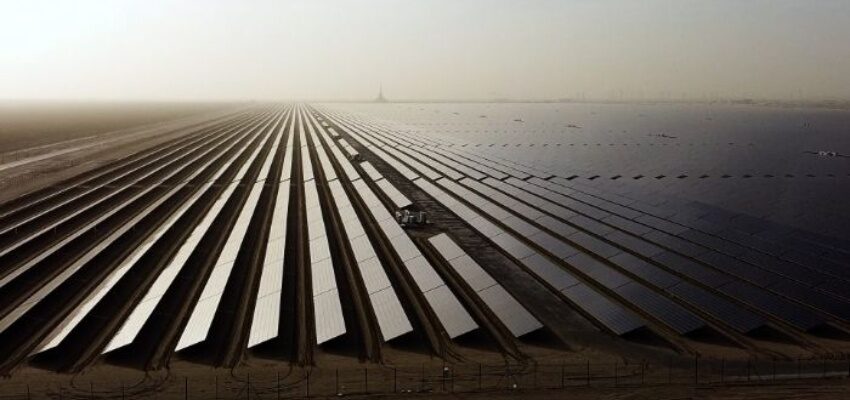Abu Dhabi firm to develop up to 2 GW of solar capacity in Libya
Libya: The General Electricity Company of Libya (Gecol) has signed a memorandum of understanding (MoU) to develop up to 2GW of solar energy capacity in Libya.

Image source: Energy & Utilities
Libya: The General Electricity Company of Libya (Gecol) has signed a memorandum of understanding (MoU) to develop up to 2GW of solar energy capacity in Libya.
Gecol has signed the MoU with W Solar Investment, a subsidiary of Alpha Dhabi Holding.
The public-private partnership (PPP) initiative seeks a strategic long-term partnership in the renewable energy sector in Libya. W Solar will lead the development of solar PV plants, with a first phase targeting 500 MW and a long-term target of 2 GW. W Solar Investment will own and operate the projects for 25 years from the start of production. It will sell the net delivered energy from the plants to the Libyan government.
The new MoU is an important step in Libya’s ongoing effort to expand its renewable energy production. The Renewable Energy Authority of Libya (REAoL) earlier announced its intention to develop photovoltaic projects totalling 2 GW, primarily through public-private partnerships.
“There is no doubt that the MoU with W Solar is important to the economic reform for the renewable energy sector in Libya,” said Weam Elabdelie, Chairman of the Board of Directors, General Electricity Company of Libya. “As we get on with unleashing investments in the renewable energy sector, having a partner like W Solar will definitely help accelerate the national green energy agenda,” he added.
Alpha Dhabi Holding, a subsidiary of Abu Dhabi-based International Holding Company (IHC), holds a diverse portfolio of non-oil sector investments. Its W Solar subsidiary has signed several agreements to implement and co-invest in renewable energy projects in Africa, Asia, and Europe.
By 2030, Libya aims for 22 % of electricity generation to come from renewable energy.
Source: Energy & Utilities




